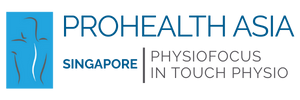A Woman's Blueprint for a Stronger Second Act: Thriving Through Menopause
Menopause, typically occurring between ages 45 and 55, is a natural transition marked by declining estrogen and progesterone. Instead of being viewed as a period of decline, this phase can be a vibrant "second act" of empowerment. By blending physical health, emotional resilience, and informed choices, women can transform the challenges of menopause into an opportunity for growth and reinvention.
1. Anchor with Physical Well-being
A strategic approach to physical health is the foundation for a successful menopausal journey.
Diet: A nutrient-rich diet that includes phytoestrogens (found in soy, flaxseeds, and legumes) can help ease symptoms like hot flashes by mimicking estrogen.
Exercise: Regular physical activity, such as strength training and yoga, is crucial for supporting bone health, managing weight, and boosting mood through endorphins.
Sleep: Prioritize 7-9 hours of restorative sleep, using mindfulness or herbal teas to combat disruptions.
Medical Guidance: Consult a healthcare provider to explore personalized options, including hormone replacement therapy (HRT), to manage symptoms effectively.
2. Cultivate Emotional Resilience
Menopause's psychological shifts, including heightened anxiety or irritability, require proactive emotional care.
Mindfulness: Practices like meditation, journaling, or therapy can foster mental clarity and emotional stability.
Support Networks: Connect with friends or join menopause communities to reduce isolation and share wisdom.
Reinvention: This phase is an ideal time to explore new passions or career paths, viewing life changes as opportunities for growth. Practicing self-compassion helps women embrace this evolution, unlocking newfound strength and authenticity.
3. Proactive Health Management
Education and informed choices are key to long-term success.
Regular Check-ups: Schedule regular medical check-ups to monitor risks for conditions like osteoporosis and heart disease, which are more common post-menopause.
Supplements: Discuss evidence-based supplements, such as black cohosh for hot flashes or vitamin D for bone health, with your doctor before use.
Stay Informed: Utilize reliable resources like books, podcasts, and specialists to stay empowered and inspired by stories of women who are thriving post-menopause.
Menopause is not an endpoint but a gateway to a richer, more intentional life. By creating a personalized blueprint of self-care, support, and knowledge, women can navigate this phase with grace, shed outdated expectations, and embrace a fulfilling "second act."

